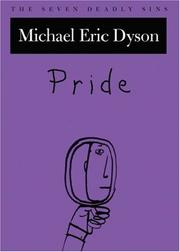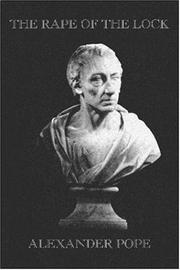| Listing 1 - 10 of 13 | << page >> |
Sort by
|
Book
ISBN: 9004269045 9789004269040 9789004231313 9004231315 1322237131 Year: 2013 Publisher: Leiden Koninklijke Brill NV
Abstract | Keywords | Export | Availability | Bookmark
 Loading...
Loading...Choose an application
- Reference Manager
- EndNote
- RefWorks (Direct export to RefWorks)
The existence of a early Spanish translation of Erasmus’s Encomium Moriae has been matter of speculation and unsuccessful research for over a century. This volume offers for the first time the edition of a seventeenth-century manuscript discovered at Ets Haim/Livraria Montezinos (Amsterdam) by its editors. They demonstrate that it is not only the first known early modern Spanish translation of Erasmus’s chef-d’œuvre, but a copy of a much earlier version, composed in mid-sixteenth century. This scholarly edition has been arranged for an easy textual collation with the canonical edition (ASD IV: 3) and translation (CWE 27) of Erasmus’s Praise of Folly and includes an extensive apparatus of footnotes devoted both to this version and to Erasmus’s Moriae Encomium itself.
Folly --- Conduct of life --- Pride and vanity --- History.
Book
ISBN: 0333215133 0333215141 9780333215135 9780333215142 Year: 1978 Publisher: London: MacMillan,
Abstract | Keywords | Export | Availability | Bookmark
 Loading...
Loading...Choose an application
- Reference Manager
- EndNote
- RefWorks (Direct export to RefWorks)
Book
ISBN: 1775452387 9781775452386 9781775452386 Year: 2011 Publisher: Auckland, N.Z. Floating Press
Abstract | Keywords | Export | Availability | Bookmark
 Loading...
Loading...Choose an application
- Reference Manager
- EndNote
- RefWorks (Direct export to RefWorks)
Satirical genius William Makepeace Thackeray may be best remembered for novels like Vanity Fair, but he first made his name as a writer as a contributor to magazines like Punch. In these pieces, Thackeray often mercilessly skewered the pretensions of the British upper classes. The collection Book of Snobs brings together some of Thackeray's finest work in this vein, and it's a must-read for fans of witty humor writing.
English --- Languages & Literatures --- English Literature --- Snobs and snobbishness --- Snobbery --- Snobbishness --- Snobbism --- Pride and vanity

ISBN: 1281156329 9786611156329 0198036477 1435609271 9780198036470 9780195160925 0195160924 0195312104 9780195312102 9781281156327 6611156321 9781435609273 019028966X 9780190289669 Year: 2006 Publisher: Oxford New York New York
Abstract | Keywords | Export | Availability | Bookmark
 Loading...
Loading...Choose an application
- Reference Manager
- EndNote
- RefWorks (Direct export to RefWorks)
Explores the fate of pride from Christian theology to the social responsibilities of self-regard and regard for the society as a whole. This work examines how pride, within black communities, becomes a necessary defense against a culture that at once formally rejected it in their religious beliefs but embraced it in their social relations.
Pride and vanity. --- Deadly sins. --- Capital sins --- Seven capital sins --- Seven deadly sins --- Sins, Capital --- Sins, Deadly --- Sins --- Sin, Mortal --- Vanity --- Conduct of life --- Deadly sins --- Folly --- Snobs and snobbishness
Book
ISBN: 0585316392 9780585316390 0836136713 Year: 1995 Publisher: Scottdale, Pa. Herald Press
Abstract | Keywords | Export | Availability | Bookmark
 Loading...
Loading...Choose an application
- Reference Manager
- EndNote
- RefWorks (Direct export to RefWorks)
Christian life --- Pharisees. --- Christianity and antisemitism. --- Pride and vanity. --- Pharisees --- Christianity --- Religion --- Philosophy & Religion --- Jewish sects --- Vanity --- Conduct of life --- Deadly sins --- Folly --- Snobs and snobbishness --- Antisemitism and Christianity --- Christianity and other religions --- Mennonite authors. --- Mennonite authors --- Judaism

ISBN: 1557429162 9786610021833 113813595X 1134954840 1280021837 0203359062 9780203359068 0415039991 9780415039994 0203375823 Year: 1989 Publisher: London New York Routledge
Abstract | Keywords | Export | Availability | Bookmark
 Loading...
Loading...Choose an application
- Reference Manager
- EndNote
- RefWorks (Direct export to RefWorks)
This seminal edition includes comprehensive annotation, the 1712 version of the poem as well as the 1714 version, and substantial critical material in appendices. No student of Pope can afford to be without this classic edition.
English poetry --- Pope, Alexander, --- Pope, Alexander --- Popiĭ, Aleksandr, --- Barnivelt, Esdras, --- Poup, Aleksandr, --- Aristocracy (Social class) --- Pride and vanity --- Young women --- Catholics --- Christians --- Women --- Young adults --- Girls --- Vanity --- Conduct of life --- Deadly sins --- Folly --- Snobs and snobbishness --- Aristocracy --- Aristocrats --- Upper class --- Nobility
Book
ISBN: 9027225583 9786613359001 1283359006 9027279276 9789027225580 9789027279279 9781283359009 1556190093 6613359009 Year: 1986 Volume: 7/8 Publisher: Amsterdam/Philadelphia John Benjamins Pub. Co.
Abstract | Keywords | Export | Availability | Bookmark
 Loading...
Loading...Choose an application
- Reference Manager
- EndNote
- RefWorks (Direct export to RefWorks)
This study is an attempt to uncover the structure of three emotion concepts: anger, pride and love. The results indicate that the conceptual structure associated with these emotions consists of four parts: (1) a system of metaphors, (2) a system of metonymies, (3) a system of related concepts, and (4) a category of cognitive models, with a prototypical model in the center. This goes against an influential view of the structure of concepts in linguistics, psychology, anthropology, according to which the structure of a concept can be represented by a small number of sense components.
Lexicology. Semantics --- English language --- Semantiek --- Concept. --- Woede --- Hoogmoed. --- Liefde --- Métaphore. --- Sémantique --- Colère --- Orgueil. --- Amour --- Metafoor. --- Metaphor. --- Semantics. --- Concepts. --- Anger. --- Pride and vanity. --- Love. --- Affection --- Emotions --- First loves --- Friendship --- Intimacy (Psychology) --- Vanity --- Conduct of life --- Deadly sins --- Folly --- Snobs and snobbishness --- Indignation --- Madness --- Wrath --- Rage --- Temper --- Concept formation --- Abstraction --- Knowledge, Theory of --- Perception --- Psychology --- Formal semantics --- Semasiology --- Semiology (Semantics) --- Comparative linguistics --- Information theory --- Language and languages --- Lexicology --- Meaning (Psychology) --- Parabole --- Figures of speech --- Reification --- Anglais (langue) --- Semantique --- Linguistique anthropologique
Book
ISBN: 1137599197 1137599200 Year: 2016 Publisher: New York : Palgrave Macmillan US : Imprint: Palgrave Macmillan,
Abstract | Keywords | Export | Availability | Bookmark
 Loading...
Loading...Choose an application
- Reference Manager
- EndNote
- RefWorks (Direct export to RefWorks)
This interdisciplinary analysis presents an innovative examination of the nature of pride and humility, including all their slippery nuances and points of connection. By combining insights from visual art, literature, philosophy, religious studies, and psychology, this volume adapts a complementary rather than an oppositional approach to examine how pride and humility reinforce and inform one another. This method produces a robust, substantial, and meaningful description of these important concepts. The analysis takes into account key elements of pride and humility, including self-esteem and self-confidence, human interconnectedness, power’s function and limitations, and the role of fear. Shawn R. Tucker explores the many inflections of these terms, inflections that cast them by turns as positive or negative, emboldening or discouraging, and salubrious or vicious depending upon the context and manner in which they are used. .
Comparative literature. --- Humility. --- Pride and vanity. --- Virtue. --- Ethics. --- Deontology --- Ethics, Primitive --- Ethology --- Moral philosophy --- Morality --- Morals --- Philosophy, Moral --- Science, Moral --- Vanity --- Philosophy --- Values --- Conduct of life --- Ethics --- Human acts --- Deadly sins --- Folly --- Snobs and snobbishness --- Meekness --- Social sciences-Philosophy. --- Ontology. --- Philosophy. --- Consciousness. --- Social Philosophy. --- Philosophy of Religion. --- Personality and Social Psychology. --- Comparative Literature. --- Comparative literature --- Literature, Comparative --- Philology --- Apperception --- Mind and body --- Perception --- Psychology --- Spirit --- Self --- Mental philosophy --- Humanities --- Being --- Metaphysics --- Necessity (Philosophy) --- Substance (Philosophy) --- History and criticism --- Social sciences—Philosophy. --- Religion—Philosophy. --- Personality. --- Social psychology. --- Mass psychology --- Psychology, Social --- Human ecology --- Social groups --- Sociology --- Personal identity --- Personality psychology --- Personality theory --- Personality traits --- Personology --- Traits, Personality --- Individuality --- Persons --- Temperament
Book
ISBN: 0520975634 9780520975637 9780520344709 Year: 2020 Publisher: Oakland, California
Abstract | Keywords | Export | Availability | Bookmark
 Loading...
Loading...Choose an application
- Reference Manager
- EndNote
- RefWorks (Direct export to RefWorks)
The United States was made in Britain. For over a hundred years following independence, a diverse and lively crowd of emigrant Americans left the United States for Britain. From Liverpool and London, they produced Atlantic capitalism and managed transfers of goods, culture, and capital that were integral to U.S. nation-building. In British social clubs, emigrants forged relationships with elite Britons that were essential not only to tranquil transatlantic connections, but also to fighting southern slavery. As the United States descended into Civil War, emigrant Americans decisively shaped the Atlantic-wide battle for public opinion. Equally revered as informal ambassadors and feared as anti-republican contagions, these emigrants raised troubling questions about the relationship between nationhood, nationality, and foreign connection. Blending the histories of foreign relations, capitalism, nation-formation, and transnational connection, Stephen Tuffnell compellingly demonstrates that the United States' struggle toward independent nationhood was entangled at every step with the world's most powerful empire. With deep research and vivid detail, Made in Britain uncovers this hidden story and presents a bold new perspective on the nineteenth-century cross-Atlantic relations.
Americans --- History --- United States --- american association. --- american colony. --- american history. --- anglophile. --- atlantic capitalism. --- atlantic relations. --- britannia. --- british american culture. --- british empire. --- british history. --- civil war. --- diplomacy. --- emigration. --- gottingen flag. --- great exhibition 1851. --- harpers weekly. --- history. --- immigration. --- imperialism. --- international relations. --- john bull. --- liverpool. --- london. --- nation building. --- nationalism. --- nationality. --- nationhood. --- nonfiction. --- philanthropy. --- public diplomacy. --- punch. --- slavery. --- transatlantic. --- uncle sam. --- vanity fair.
Book
ISBN: 1280879777 9786613721082 0226505669 9780226505664 0226505650 9780226505657 Year: 2012 Publisher: Chicago London University of Chicago Press
Abstract | Keywords | Export | Availability | Bookmark
 Loading...
Loading...Choose an application
- Reference Manager
- EndNote
- RefWorks (Direct export to RefWorks)
Jean-Luc Marion is one of the world's foremost philosophers of religion as well as one of the leading Catholic thinkers of modern times. In God Without Being, Marion challenges a fundamental premise of traditional philosophy, theology, and metaphysics: that God, before all else, must be. Taking a characteristically postmodern stance and engaging in passionate dialogue with Heidegger, he locates a "God without Being" in the realm of agape, or Christian charity and love. If God is love, Marion contends, then God loves before he actually is. First translated into English in 1991, God Without Being continues to be a key book for discussions of the nature of God. This second edition contains a new preface by Marion as well as his 2003 essay on Thomas Aquinas. Offering a controversial, contemporary perspective, God Without Being will remain essential reading for scholars and students of philosophy and religion. "Daring and profound. . . . In matters most central to his thesis, [Marion]'s control is admirable, and his attunement to the nuances of other major postmodern thinkers is impressive."-Theological Studies "A truly remarkable work."-First Things "Very rewarding reading."-Religious Studies Review
God (Christianity) --- Ontology. --- Philosophical theology. --- metaphysics, philosophy, theology, god, divinity, heidegger, agape, religion, spirituality, christianity, love, charity, thomas aquinas, ontology, causa sui, esse, being, neo-thomist, agnosticism, husserl, transformation, idolatry, eucharist, vanity, icon, idol, phenomenology, conceptuality, giving, revelation, gift, presence, pseudo-dionysius, nonbeing, objectivity, continental.
| Listing 1 - 10 of 13 | << page >> |
Sort by
|

 Search
Search Feedback
Feedback About UniCat
About UniCat  Help
Help News
News